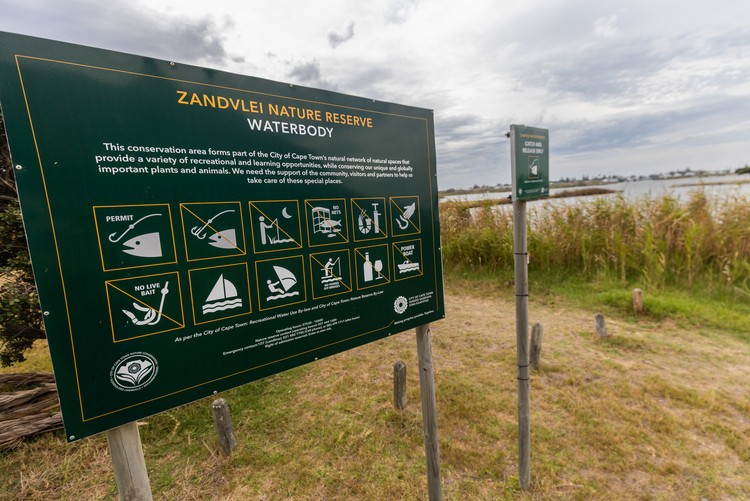
5 August 2025
Tons of plastic packaging fill our rivers, wetlands and seas, yet the large multinational corporations that produce them face little accountability.
At the Zandvlei estuary in Lakeside, which is home to indigenous fish and birds, the stakes are high. One grey morning, we waded through the water to find hundreds of plastic items – cool drink bottles and caps, polystyrene, and chip packets – stuck between the reeds.
A bottle manufactured by the Coca-Cola company lies on the north shore of Zandvlei, a vlei in Lakeside, Cape Town. Photos: Ashraf Hendricks
Hardly any people go to the north shore of Zandvlei, yet it is blanketed with plastic pollution. The plastic has been blown there by Cape Town’s south-easterly winds. Photo: Ashraf Hendricks
These plastic items will never fully break down and will turn into microplastics that continue to impact the environment, including human health.
Among the world’s top plastic polluters are The Coca-Cola Company, Nestlé, Unilever, PepsiCo, Mondelēz International, Mars, Incorporated, Procter & Gamble, Danone, and tobacco giants Altria and British American Tobacco, according to Break Free From Plastic.
These companies often have self-regulated recycling initiatives with targets that are often missed. Globally, only about 9% of plastic is recycled. The rest ends up in landfills, incinerators or the environment.
From 5 to 14 August, delegates from more than 170 countries will meet in Geneva for the final round of Global Plastics Treaty negotiations.
It will be a defining moment: whether the world chooses binding limits on plastic production, or delays with vague commitments to improved waste management.